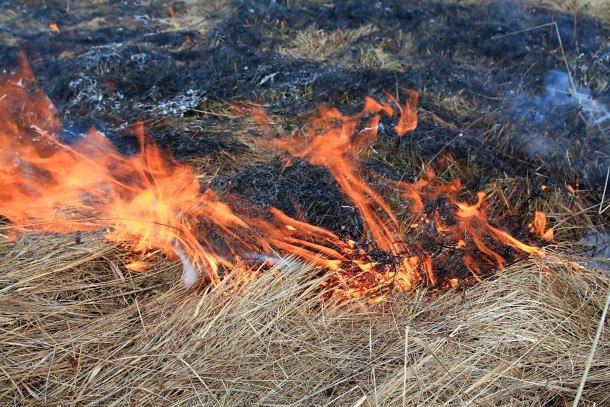21.08.2015 | News

Burning of agricultural residues and wild fires in Russia constitutes the largest source of black carbon emissions (soot) that speeds up climate change and the melting of the Arctic. This is the main finding of a report published by NEFCO and the International Cryosphere Climate Initiative (ICCI).
The project was implemented in co-operation with Bellona, the Union of Russian Farmers (ACCOR) and the Swedish Institute of Agricultural and Environmental Engineering (JTI).
Open agricultural field burning causes up to 90 per cent of all wildfires in Russia and is also extensively practiced on virtually all agricultural lands in Ukraine. Farmers burn residues to reduce straw and weeds on the fields as a short-term cost-saving measure in the hope of increasing soil fertility. In fact, open field burning rapidly decreases soil quality and fertility by destroying humus and other organic matter. It also increases soil run-off and the need for fertilizer, and therefore actually decreases crop yields and profitability.
The black carbon released from agricultural open burning speeds up the impact of climate change in the Arctic by accelerating the rate of ice melting as soot reduces the reflexivity of the snow and ice surfaces. Despite open burning being prohibited by law in Russia, the practice continues due to insufficient monitoring and law enforcement.
The report published by NEFCO and ICCI has, however, had a positive impact on the situation in some of the regions concerned. In particular, the co-operation with the Krasnodarskiy Krai regional government in Russia has proved to be successful, giving rise to stricter no-burn legislation, as well as a 21 per cent reduction in burning since the project was started. Most farmers burn residuals on the field simply because they lack alternatives. Replacing burning practices with reduced tillage, chopping of straw as well as collection of straw for bioenergy and animal feeding, usually requires investments and financial input that is beyond the reach of most small-scale farmers.
On the long term, the project implemented by NEFCO, ICCI, JTI, ACCOR and Bellona aims at decreasing emissions of black carbon from open agricultural burning in Russia by 90 per cent in order to reach the same levels as in the EU. This will be done by addressing education and training, legislative and policy support as well as providing financing for pilot projects. The report points out that NEFCO could play an important part in providing financial back-up and loans to farmers interested in adopting new practices and acquiring new technology. NEFCO has solid experience from the agricultural sector in Russia, Ukraine, Estonia, Latvia and Lithuania, particularly in the area of manure treatment.
Footnote:
On 14 August, NEFCO and ICCI invited relevant Nordic potential future project stakeholders to outline a strategy and vision to estimate black carbon emissions from open burning. The seminar also assessed economic short-term incentives for farmers to invest in no-burn practices and machinery as well as the overall financing of the prolongation and extension of the project.
Download NEFCO’s presentation ‘A future strategy for open burning reduction in Eastern Europe’
Download a summary of the above mentioned report
Read a summary of the seminar in Stockholm on 14 August
Download the ICCI presentation ‘Promoting alternatives to open burning in Russia and Ukraine’